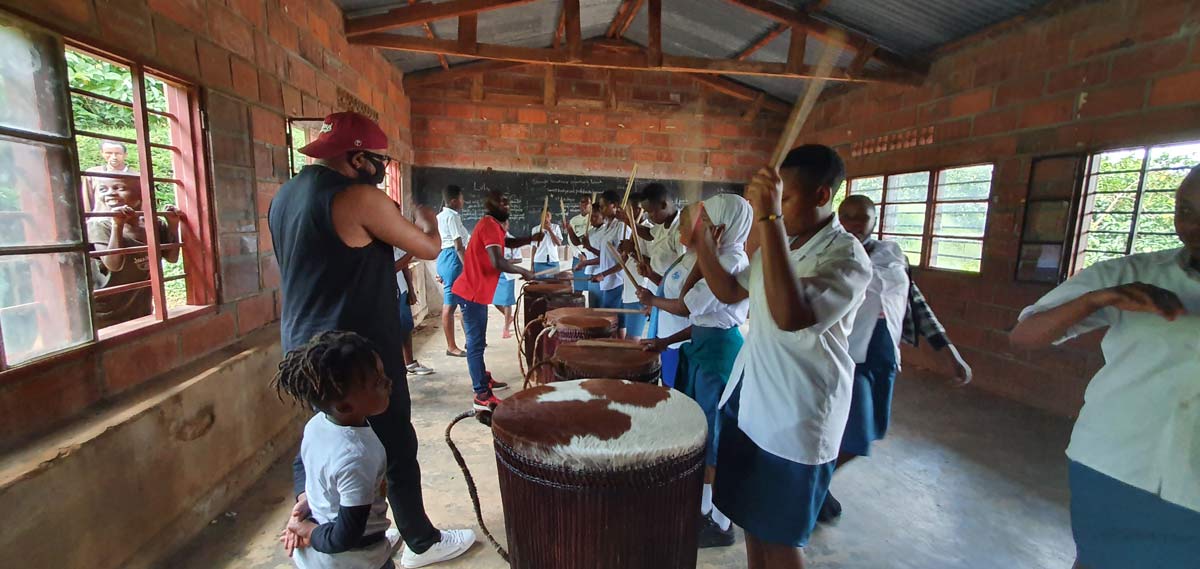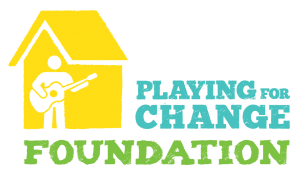
Through this unprecedented situation, we understand that it helps to be innovative, but nothing replaces the in-person experience. In much of Africa, we’ve been fortunate that improved or less severe conditions have allowed us to resume some direct learning bringing students and teachers back together.
![]()
In Rwanda, the Ubuntu Music Program continues to thrive, resuming music classes led by a dynamic group of teachers. Vocal teacher Egide Iradukunda leads a group of young vocal students, while guitar, percussion, and dance are taught throughout the week. A talented group of youth, led by their teacher and program leader, Robert Niyikiza, learned and performed a beautiful rendition of classic gospel songs as they explored new musical styles and influences.
Students at the Bizung School in Ghana returned to the music school. Although for now there are smaller class sizes and some taking place outside or in the open-air classroom for safety, the Bizung School is going strong, slowly adding more students each week. In addition to music lessons, youth are participating in an educational and cultural exchange project virtually with young people in 3 other countries: Mexico, Nepal, and the United States. In Ghana, we’re exploring a hybrid model of how in-person learning can co-exist with technology and the virtual experience.
The Imvula Program in South Africa is making the most of the restrictions currently in place throughout the country. Even though we’re unable to resume lessons at local schools, classes in marimba, dance, and visual arts, including beading, are happening at a community center maintaining safety measures. More than 30 children have a safe place to go where few other options exist in the area. For a few hours, the kids can learn, play and express themselves providing them with invaluable social and emotional support. In addition to music, an afternoon meal is given to each child prepared by women from the community. In Gugulethu, they understand the importance of adapting to the situation and doing what they can to continue helping others.
At PFCF, in Africa, and around the world music is still in our schools. We will do all we can to safely continue offering not only access to music and the arts but a safe space. A space that is vital for children and youth as they navigate the unpredictable circumstances of life.
